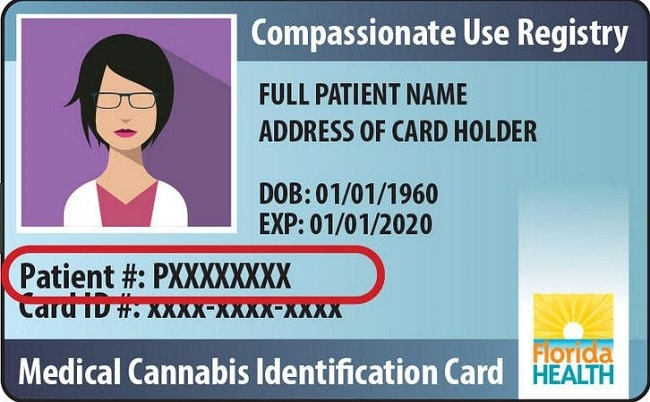
A medical marijuana identification card (MMID) is an authorization issued by a US state that permits an individual to use cannabis for treating a qualifying medical condition. It is also popularly known as a cannabis card.
Patients who have been issued an MMID can enter licensed medical dispensaries to buy marijuana for use as a medicine. The card also allows patients to grow cannabis at home (in specified quantities) and to have it home-delivered.
Page Contents
The process of obtaining an MMID
Several US states have now legalized the use of medical cannabis for treating various ailments and their symptoms. To qualify for an MMID, the patient needs to obtain a signed document from a licensed physician recommending marijuana as an alternative treatment method for their ailment.
Before seeking a doctor’s recommendation, the patient must check if their condition is approved by the state as a qualifying condition. The next step is to apply for the MMID and pay the specified fee, which differs from state to state.
Note that it is illegal for a medical practitioner to prescribe marijuana.
Importance of a medical marijuana card
With recreational (adult-use) cannabis also legalized in several states, medical marijuana users often wonder if getting an MMID is worth the trouble when recreational users can simply walk into a store and get the product.
If you’re living with an ailment that could be treated with cannabis, apply for an MMID, as it has several benefits, such as tax concessions, ease of access, lower pricing and so forth. MMID holders get ongoing support that’s not available to others, which helps them avail long-term cannabis treatment.
Why you should consider getting an MMID
One of the key benefits of holding an MMID is that patients who are dependent on medical marijuana for a health condition get access to the medication at a much lower cost, which makes it viable for them to purchase it regularly.
Moreover, easy access to affordable medical cannabis is extremely important for those who use it to improve the quality of their day-to-day life—for instance, for relief from chronic pain, headache, and other debilitating conditions.
Treatment with cannabis is not covered by insurance, and if there were no medical dispensaries, people would have to buy cannabis from recreational dispensaries at exorbitant prices. Instead, medical users have the option to walk into a local dispensary or simply order high-quality cannabis products online through services such as Gokushly weed delivery.
Also, some cards allow minor patients legal access to medical marijuana, which is not possible with recreational stores.
Growing your own medical cannabis
Growing marijuana for personal use is not permitted in all states. Those states that do allow MMJ patients to grow cannabis have specified limits that you must follow if cultivating your own crop at home. For instance, if you live in Oregon and have an MMID, you can grow a maximum of six cannabis plants for medicinal use.
Medical growing is a good way to curtail or supplement your dispensary purchases.